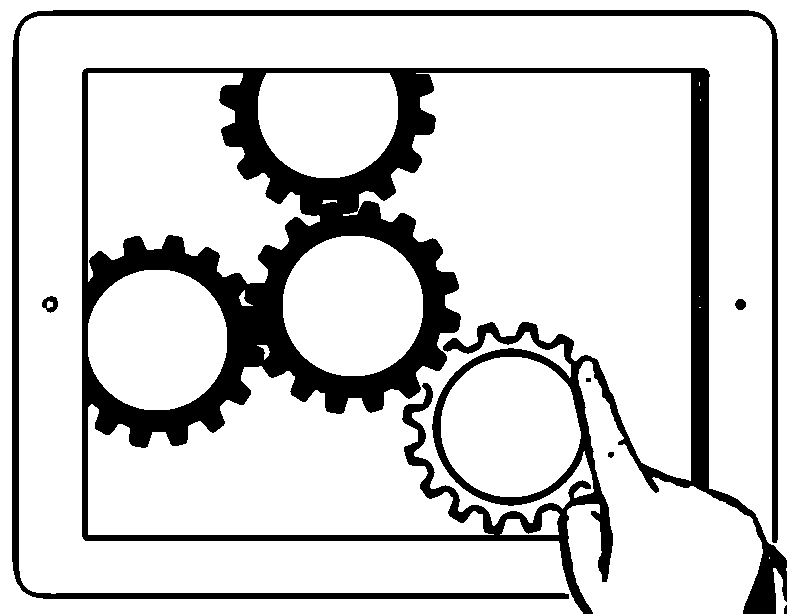
Published 2013-10-03
Keywords
- Förskola,
- Teknik,
- Ämnesdidaktik
How to Cite
Abstract
Modern society places high demands on the individual when it comes to the ability to understand and acquire skills and knowledge of technology (Turja, Endepohls-Ulpe & Chatoney, 2009). Access to knowledge of technology should be available in the early stages, as early preschool, and is to be an important feature of the entire education system. In many countries – just as in Sweden – the preschool ages are emphasised as an important period laying the groundwork for knowledge and interest in technology. Children's natural curiosity is utilised to develop their knowledge about technology – especially as the preschool age is an important time to get both boys and girls interested.
Introduction
In recent years, Sweden has placed more focus on the field of technology in an educational context. In the revised curriculum for the preschool (Lpfö, 1998, rev. 2010) technology is highlighted as an important working area. The preschool is the first institutional context met by children. The teacher's role is important in order to develop children's experiences of technology and visualise this area. It is particularly important that it relates to a child's play. In the preschool environment, learning and playing are combined in everyday activities (Löfdahl, 2002; Knutsdotter Olofsson, 2010). Through the different materials used in play and that build upon a child's capability for trying out things, construction and discovery, technology has an important role in the preschool (Parker-Rees, 1997). Learning through play is based on a child's curiosity and willingness to develop new knowledge where the teacher and environment are important for supporting the children's learning ability (Pramling Samuelsson & Pramling, 2008). The current curriculum (Lpfö 98) states that educators are to strive to ensure that children acquire basic knowledge of technology. This has been formulated in several areas of Lpfö 98.
The aim of the article is to investigate how educators discuss technology in their profession. What characterises the preschool environment when it comes to "offering" technology and knowledge within the area? What knowledge of technology is present amongst preschool educators? How do educators discuss technology?
Data has been collected from two preschools that have taken an interest in preschool technology lessons. Kotten preschool is situated in an urban area of a medium-sized Swedish municipality. It consists of two mixed-aged units. The preschool does not have a specific educational profile, but they work consciously to stimulate children's play. Kotten has access to a large playground connected to a grove. The playground provides access to various forms of play materials, such as a playhouse, cars and a slide.
Tallen's preschool is situated in the countryside but is part of a medium-sized Swedish municipality. The preschool consists of three mixed-aged units with over a hundred children in total. Tallen has recently started teaching with focus on natural science/technology. The unit is home to an 'atelier' – a person, (often with an educational background in the arts) that works with creating activities within the Reggio Emilia approach to education. The atelier works with creating activities within the natural science/technology subjects. The atelier works partly with groups of children and carries out different forms of activities, and partly with different further training methods for personnel.
The collected material is based on interviews with focus groups of educators from the aforementioned preschools. The focus group interviews were organised around a number of questions upon which the participants were asked to reflect (Wibeck, 2010). We have worked in accordance with research guidelines issued by the Swedish Research Council, which include the requirements for information, consent, confidentiality and usage (HSFR, 1996).
Conditions for technology in preschools
The following section will describe: The importance of the institutional framework and The educators' understanding of technology.
The importance of the institutional framework
The empirical material gathered shows that the institutional framework of the preschool is important for how work with technology is organised and conducted at the two preschools examined. One requisite for preschools is that their technology lessons are organised as either a an individual activity or an integrated part of activities. Both preschools highlight the importance of seeing technology in the every-day, but the manner in which Tallen's preschool have arranged technology is clear and explicit. This section presents the results, divided into the different preschools.
Tallen's preschool – organised technology lessons and Kotten's preschool – an integrated part of the activities. Tallen's preschool provides organised technology lessons in which the unit head is particularly proactive. The organisation means that a specific educator – the atelier – conducts allocated lessons with a group of children. The lessons focus on technology or natural sciences and are conducted as group activities. These activities are primarily organised for the older children at the preschool. Nevertheless, there are certain experiments in which children of all ages can participate. One example is an experiment where the children test surface tension. Documentation surrounding the various technology exercises is meticulous and detailed, with each child participating in each step. Kotten's preschool has just begun a project for working with more technology.
At Kotten's preschool, the educators work with 'playboxes' which the children can choose themselves and play with the contents. The playbox contains different types of materials which aim to stimulate play in various manners. Some of the playboxes can be used both indoors and outdoors. In our observations, we watched children in the playground building things out of lego. Playboxes can stimulate the imagination, whilst at the same time, its contents limit the ways a game can be created. There is also a 'building room', equipped with boxes filled with different forms of building materials, thus offering children the chance to develop various constructions.
The educators' understanding of technology
During the focus group discussions, we asked the educators to describe what technology means to them. In an analysis of their answers, we can see some recurring themes. These themes are about problem solving as a tool and, that technology is everywhere in day-to-day life.
Problem solving
When the educators discuss what technology means to them, the idea of technology being different forms of problem solving is brought forward. Eva:
Solving problems. I see a child in front of me – a child was sitting and building a tower when it collapsed – everything is about building correctly. Problem solving.
With this view of technology as a way to solve problems, there is the idea that children will learn different technical skills for solving different problems. The nature of problem solving means that the child learns a skill by independently exploring and testing different approaches to eventually find one solution.
It is everywhere in day-to-day life
One position expressed by many educators is that technology is something that is clearly present in everyday life. For the function of day-to-day life, technology permeates the most daily needs. This refers to situations when the children are getting dressed and use zips, put on their shoes, or, when it's time for food.
Anna: I can also think of a daily situation – when the children are learning to cut food. You sit holding a knife in one way and a fork in another and talk about how to hold the cutlery and it is important that it should be easy to cut things. That's also day-to-day technology.
The term, 'day-to-day technology' is something used by the educators to describe that it is something natural and nothing artificial.
A tool
Another example described by the educators of how technology plays a part in modern society includes computers, mobile telephones and electricity. Technology is described as something man-made, so-called 'artefacts'.
Natalie: Technology is something that helps a person with things which are not found i nature. Of course, nature has its own technology.
The idea that technology is everything is almost becoming a slogan that can be used in an education context as a strategy for making the subject less intimidating. However, viewing technology as 'everything' creates the risk that the subject of technology will be reduced and the concept will lose its power.
Discussion
The organisational structure of both preschools studied differs. There is a great deal of variation amongst personnel at both preschools and their knowledge about technology and their ability to reason and reflect over how technology is to be put into practice. Technology can be viewed in two different ways: One way of understanding technology is knowing how things work. Another way is knowing why something happens. If we apply this to preschool activities and technology lessons, it is knowing how children participate in different activities involving technology or knowing how they participate in experiments. Whilst the second way is knowing what it entails for a child to understand the cause-and-consequence of what is happening. The interview result showed that personnel understand that children are naturally curious and reflect upon different situations and phenomena and that children want to try to understand things at an early age. This takes place partially in spontaneous play initiated by the child and partially in the structured activities planned by personnel and carried out with the children. In both cases, it is important for the teacher to problematise the situation and pose questions upon which the children can reflect – so the children are able to develop their thought process dealing with technology. It seems as if the personnel have an understanding of the children's interest in technology – yet the personnel never take advantage of this interest during 'free' play (cf.: Tu, 2006).
According to the informants, one of the greatest difficulties with the subject is that they have a lack of knowledge in the subject. There is a demand that different technical terminology can be named and used. Most of all this knowledge is required so the children do not learn the incorrect terms. Many mention the difficulty of raising awareness of technology, creating understanding and indicating when it arises in daily preschool events. A large uncertainty has been expressed about technology and how it can – and will – be adapted for children between the ages of 1 and 5 (cf. Tu, 2006). Most of all, there is a great uncertainty to how they are to create a learning environment for the children in which technology is something 'natural'. They express a large need of a terminology list in addition to being able to explain and clarify concepts and the different forms of technology (cf. Senesi, 1998). Most of all, personnel demand more knowledge in order to make teaching better. In the first instance, this is provided by different courses. They emphasise how their own "doing" within the subject is important for them to retain the knowledge.
This can also be understood in terms of how courses within the technology field influence the personnel's attitude and subsequently, the knowledge children develop in relation to the didactics. The personnel's knowledge in this area needs to be developed, regarding both how and why. Personnel need to be given more knowledge of how a preschool environment can be equipped to encourage and develop the children's passion for exploring technology. Knowing how the different materials can be used is another weakness shown by many. Many children, not enough personnel and little time – or a combination of these factors – are other issues that appear to be significant for how the informants perceive their opportunities to plan activities and organise different materials in order to create an inviting learning environment that stimulates the development of a child's technological knowledge.
References
Knutsdotter Olofsson, B. (2010). Vad barn lär när de leker. I M. Jensen & Å. Harvard (red). Leka för att lära. Utveckling, kognition och kultur. Lund: Studentlitteratur.
HSFR. (1996). Forskningsetiska principer för humaniora och samhällsvetenskap. Stockholm: Humanistisk-Samhällsvetenskapliga forskningsrådet.
Löfdahl, A. (2002). Förskolebarns lek: en arena för kulturellt och socialt meningsskapande. Karlstad: Karlstads universitet.
Parker-Rees, R. (1997). Learning from play: design and technology , imagination and playful thinking. IDATER 1997 Conference, Loughborough: Loughborough University. http://hdl.handle.net/2134/1458
Pramling Samuelsson, I. & Pramling, N. (2008). Att skapa betingelser för att följa små barns lärande. I I. Pramling Samuelsson & N. Pramling (red.), Didaktiska studier från förskola och skola. Malmö: Gleerups förlag.
Senesi, P-H. (1998). Technological knowledge, concepts and attitudes in nursery school. IDATER 1998 Conference, Loughborough: Loughborough University. http://hdl.handle.net/2134/1436
Tu, T. (2006). Preschool Science Environment: What Is Available in a Preschool Classroom? Early Childhood Education Journal, 33(4), pp. 245-251. http://dx.doi.org/10.1007/s10643-005-0049-8
Turja, L., Endepohls-Ulpe, M. & Chatoney, M. (2009). A Conceptual Framework for Developing the Curriculum and Delivery of Technology Education in Early Childhood. International Journal of Technology and Design Education, 19, pp. 353-365. http://dx.doi.org/10.1007/s10798-009-9093-9
Utbildningsdepartementet. (1998/2010). Läroplan för förskolan – Lpfö 98. Stockholm: Fritzes.
Wibeck, V. (2010). Fokusgrupper: Om fokuserade gruppintervjuer som undersökningsmetod. Lund: Studentlitteratur.

 Kristina Hellberg is Senior Lecturer in Education with a specialization in Special Education, Department of Behavioural Sciences and Learning dep Linköping University.
Kristina Hellberg is Senior Lecturer in Education with a specialization in Special Education, Department of Behavioural Sciences and Learning dep Linköping University. Helene Elvstrand is Senior Lecturer in Early Childhood Education with a specialization in recreation centers, the Department of Social and Welfare Studies at Linköping University.
Helene Elvstrand is Senior Lecturer in Early Childhood Education with a specialization in recreation centers, the Department of Social and Welfare Studies at Linköping University.